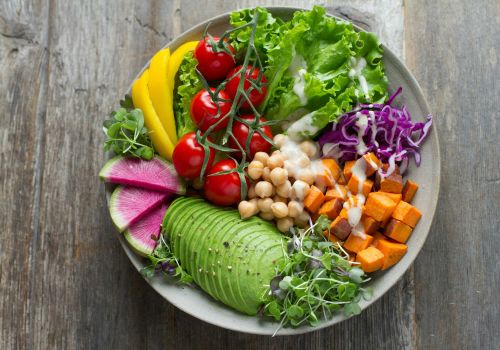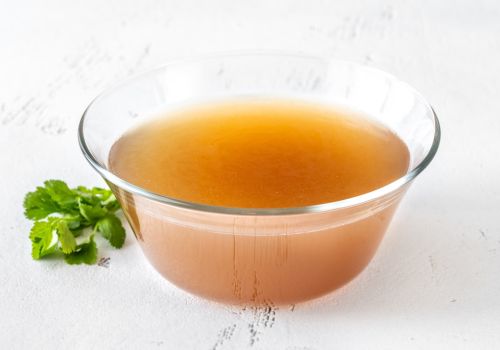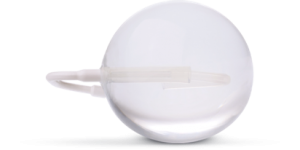While undergoing a successful bariatric procedure is one of the best ways to lose weight, it is just as important to appreciate the role that bariatric nutrition plays. How can you prepare yourself for upcoming surgery? What rules should you follow immediately after? What foods can you eat once a gastric balloon is in place? If you want to be fully prepared for what is in store, these and similar questions will provide a much-needed edge. Let’s begin.
What is Bariatric Nutrition?
What does nutrition after bariatic surgery actually involve? Simply stated, those who have undergone this type of procedure will need to pay greater attention to what foods they eat as well as the nutrients that are consumed. Why is this the case?
We need to remember that a gastric bypass is intended to limit the amount of food that your body can absorb at any given time. Thus, you might not be receiving the proper vitamins and minerals due to such a restricted diet. Another issue is that a well-balanced bariatric diet after surgery can help to avoid any short-term digestive issues that you might otherwise experience.

The Key Principles of Bariatric Nutrition
Before moving on to discuss some basic dietary guidelines after bariatric surgery, it is a good idea to summarise a handful of key principles to better appreciate what to expect as well as to understand why this approach is so important. Here is a quick breakdown:
- Always eat three meals each day.
- Make it a point to thoroughly chew your food (this helps with digestion).
- Avoid foods high in calories such as chips, candy, ice cream, and processed meats.
- Devote at least 30 minutes to each meal.
- Abstain from nicotine and alcohol, as these can both impede the healing process.
- Adopt smaller portion sizes to accommodate for reduced stomach capacity.
Please note that these are only general guidelines associated with gastric bypass nutrition. This article previously written by the team at Spatz3 can provide additional suggestions and insight. It may also be used in conjunction with the nutritional suggestions that are found immediately below.
Bariatric Nutrition Guidelines
Similar to any medical procedure, your body will require time to adjust after the surgery has been completed. The only major difference is that bariatric treatments dramatically impact how your digestive system functions and therefore, obtaining the proper nutrients is even more important. Let’s now discuss what foods to consume before the appointment as well as nutrition after bariatric surgery.
Nutrition Guidelines Before the Procedure
This stage is sometimes referred to as the pre-op diet or the liquid-only diet. The primary intention is to prepare your stomach and digestive tract for what is in store. This normally results in adopting a diet only consisting of liquids two or three days before the surgery. However, we are not only referring to water in this sense. You can choose additional options including:
- Soup broth.
- Low-calorie sports drinks.
- Gelatin.
Beginning at midnight on the day of the intended procedure, you will need to abstain from any drinks (including water). You might otherwise not be approved for the surgery. This is similar to other types of medical interventions such as those requiring anaesthesia.

Nutrition Guidelines After the Procedure
Assuming that the surgery has gone as planned, a handful of additional guidelines will need to be followed without compromise. These tend to be segmented into four stages equating to one month in total.
During the first week, you will still be restricted to an all-liquid diet. Note that this includes water, broth, decaffeinated beverages (such as tea), and sugar-free sports drinks. Avoid coffee and carbonated drinks; both can irritate your stomach and the newly implanted gastric balloon.
You can begin to return to thicker liquids throughout the second week. Some examples include cream of wheat cereal, applesauce, protein shakes and Greek yoghurt. Once again, avoid foods that are high in sugar. This is also when it can be a good idea to begin paying attention to nutrition labels; a healthy habit that will provide valuable insight well into the future.
Once you have reached your third week, things (thankfully) begin to get more interesting. It is now possible to reintroduce many pureed foods back into your diet. Soft fruits, steamed or cooked vegetables, beans, scrambled eggs, fish, cottage cheese, and fish are some tasty examples.
Finally, solid foods can be consumed four weeks following your surgery. Many of these may resemble your pre-surgery habits and yet, a handful of exceptions should be mentioned. Some substances can still cause irritation and lead to discomfort. Common examples include fried foods, whole dairy products, pasta, candy, and vegetables that are fibrous (such as broccoli). While you are also permitted to enjoy caffeinated drinks, do so in moderation (caffeine is another irritant).
Long-Term Nutritional Guidelines
Nutrition goals for bariatric patients extend far beyond the four-week timetable mentioned in the previous section. Still, discipline is in order if you hope to fully leverage the beneficial effects of a bariatric procedure. Here are the three core components of a well-balanced bariatric diet after surgery:
- Lean meats (such as chicken, fish and pork).
- Rich sources of complex carbohydrates.
- Healthy fats (particularly omega-3, 6 and 9 fatty acids).
The main intention here is to limit your intake of unhealthy substances while simultaneously enabling your body to obtain the vitamins and nutrients that it requires to function properly.
Furthermore, it could also be wise to consult with a nutritionist. He or she will provide personalised advice while developing a unique dietary regimen based on your short- and long-term goals.
Are Nutritional Guidelines Different for Bariatric Procedures with and Without Surgery?
One of the issues associated with traditional bariatric surgeries involves their decidedly invasive nature. This is notably different when compared to devices such as the Spatz3 gastric balloon. A bariatric diet after non-surgical intervention may therefore be less strict and recovery times are naturally shorter. However, it is still important to follow the advice mentioned above; especially if you your stomach is naturally sensitive or you have experienced issues with specific foods in the past.
Tips to Successfully Follow Bariatric Guidelines
There is little doubt that bariatric surgery can provide amazing benefits to those who have otherwise found it nearly impossible to reduce their BMI and to limit their caloric intake. However, this does not give anyone “carte blanche” to return to their previous eating habits. There are many ways in which you can ensure positive long-term results by embracing these additional guidelines:
- Preparing healthy and balanced meals in advance.
- Setting caloric targets on a daily basis and sticking to these figures.
- Keeping a journal that describes the foods that you eat and possible side effects (such as cramping or bloating).
- Using a support system in order to maintain motivation. Family, friends and co-workers are all excellent examples.
- Eliminating all processed foods from your diet. These may quickly cause you to regain the weight that was initially lost.
- Creating a long-term weight-loss plan and setting realistic milestones.
- Following the dietary guidelines recommended by the team at Spatz3.
Thankfully, the innovative design of the Spatz3 adjustable gastric balloon can dramatically reduce recovery times. This will allow you to return to a balanced diet and enjoy many of the foods that you have been missing following the procedure. It is still a fact that the bariatric nutrition principles outlined throughout this article can make all of the difference in the world between leading a healthy lifestyle and falling short of your goals.


